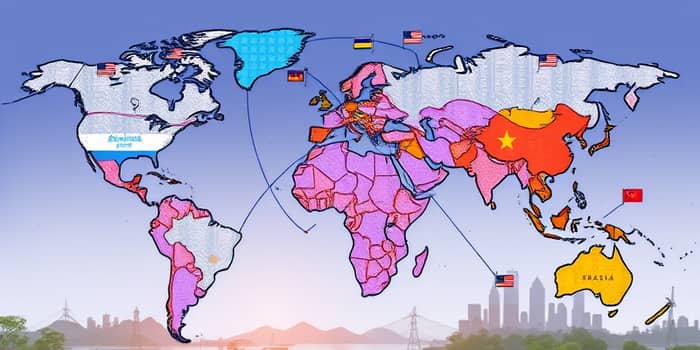In today's interconnected world, the influence of geopolitics on investment decisions cannot be overstated. Investors are increasingly recognizing that political events, international relations, and government policies can dramatically affect market stability and profitability. As a result, understanding the geopolitical landscape has become a critical skill for institutional and individual investors alike.
Geopolitical factors such as regional conflicts, trade agreements, and diplomatic relations shape market dynamics and business environments across the globe. These elements contribute not only to realignment in investment strategies but also to the shifting priorities of global capital flows.
Therefore, this article delves into the intricacies of geopolitics, examining how various political factors affect investment decisions, particularly in diverse regions worldwide. We will explore key geopolitical factors, regional dynamics, associated risks, and opportunities, as well as strategies to navigate these complexities.
Understanding Geopolitics
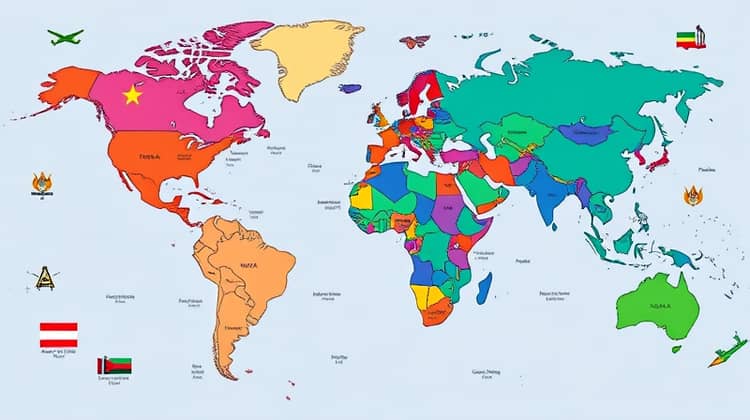
Geopolitics refers to the influence of geographical factors on political power and international relations. It encompasses the strategic considerations that nations make with respect to their economic resources, military capabilities, and regional influence. Understanding geopolitics is essential for investors because it provides insights into the often volatile environment in which businesses operate.
Higher geopolitical tensions can lead to uncertainties, making forecasting more complex. For instance, clashes over territory, resources, or political ideologies often result in sanctions, trade wars, and military conflicts, all of which can have immediate and far-reaching implications for investments.
In this intricate web of international relations, the ability to assess potential geopolitical risks and opportunities becomes a vital part of investment decision-making. Investors must consider these dynamics in their strategies to mitigate risks while tapping into potential growth across varying geographies.
Key Geopolitical Factors Influencing Investment
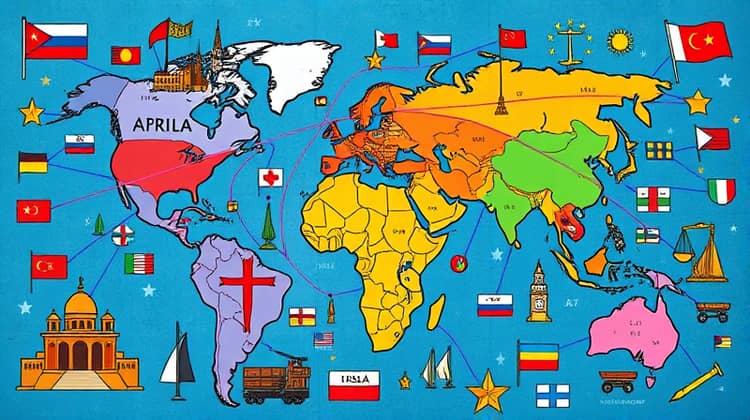
Several geopolitical factors play a crucial role in shaping investment decisions. Among these, political stability, economic policies, and regional alliances stand out as primary influencers.
Political stability is paramount for attracting foreign investments as it assures investors of a predictable business environment. Conversely, countries with high levels of instability may be perceived as risky, leading to disinvestment or lower capital inflows.
- Political stability
- Economic policies
- Trade agreements
- Regional alliances
- Military events
- Diplomatic relations
Regional Geopolitical Dynamics
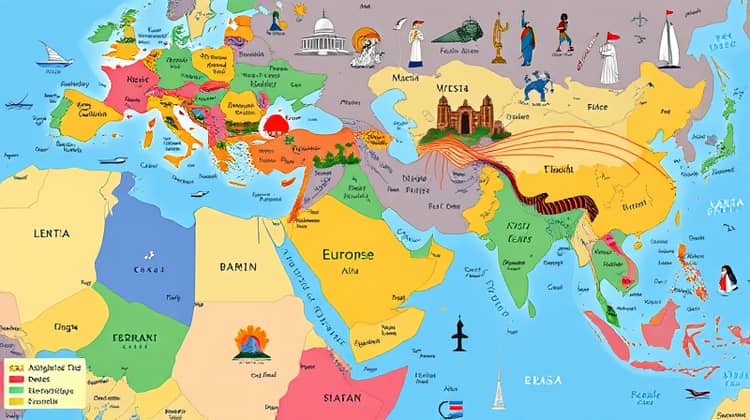
Investors must navigate varying geopolitical landscapes across different regions, each with its unique set of dynamics and influences. Understanding these regional differences is paramount for making informed investment decisions, as geopolitical landscapes can significantly affect market confidence and economic viability.
The geopolitical complexity in regions like the Middle East, Asia-Pacific, and Europe illustrates the critical intersections between politics, economics, and investment flows. Each region presents specific challenges and opportunities that must be evaluated carefully.
1. Middle East
The Middle East is often characterized by its geopolitical volatility, driven by historical conflicts, resource control, and sectarian divisions. This complexity complicates investment decisions, as political unrest can arise suddenly and lead to dramatic changes in market conditions or government policies affecting foreign investors.
However, the region remains critical due to its abundant natural resources and pivotal strategic location. Investors are often drawn to opportunities despite the risks, using tactical approaches to minimize exposure to geopolitical shocks.
- Oil and gas investments dominate due to resource wealth.
- Involvement in infrastructure development amidst reconstruction efforts.
- Strategic partnerships in technology and renewable energy.
2. Asia-Pacific
The Asia-Pacific region represents an economic powerhouse, driven by rapid growth and increasing consumer demand. However, it is also fraught with geopolitical tensions, particularly relating to territorial disputes in the South China Sea and varying political regimes. These factors create a complex investment landscape.
Investors must remain aware of such tensions as they influence trade relations and market accessibility, affecting both local businesses and multinational enterprises.
- China's Belt and Road Initiative reshaping trade routes.
- Regional trade agreements fostering economic ties.
- Geopolitical risks affecting supply chain management.
Investors also need to keep abreast of the regional shifts and realignments that could arise from evolving alliances and power balances within Asia-Pacific, facilitating or impeding their investment strategies.
3. Europe
Europe's geopolitical landscape is shaped by its post-Cold War history, the European Union's integration efforts, and rising nationalist sentiments that challenge collective policies. As a result, investors face unique challenges and opportunities when navigating this region's markets.
Changes in political leadership, economic regulations, and relations with neighboring countries can lead to discrepancies in investment attractiveness and market performance across the continent.
- Brexit's impact on trade and foreign investments.
- EU policies shaping market standards and regulations.
- Regional political developments influencing investment attraction.
Geopolitical Risks and Opportunities
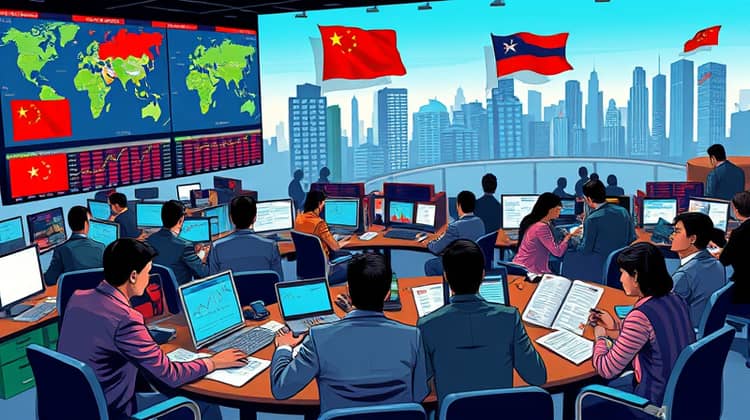
Investors must remain vigilant regarding geopolitical risks that can disrupt markets and lead to financial losses. These risks range from sudden political changes to prolonged conflicts and their economic implications. Understanding these risks is fundamental to developing robust investment strategies.
Conversely, every geopolitical challenge can also present unique opportunities for investors prepared to act decisively and strategically. Identifying nations or sectors where geopolitical tensions create buying opportunities can yield significant rewards.
- Political instability leading to market volatility
- Emerging markets presenting high-growth opportunities
- Disruptive technologies creating new investment avenues
- Strategic partnerships forming amidst geopolitical shifts
Strategies for Navigating Geopolitical Risks

Navigating the complexities of geopolitical risks requires proactive strategies and thorough due diligence. Investors need to be adaptable, aligning their strategies with current events and trends to manage their exposure effectively. This can include leveraging insights from geopolitical analysis and expertise to inform investment choices.
Diverse investment portfolios can also effectively mitigate risks associated with specific regions or sectors. By spreading investments across various geographic areas and sectors, investors better cushion potential shocks resulting from geopolitical developments.
- Conduct thorough geopolitical risk assessments before investments.
- Maintain a diversified portfolio to spread risks across regions.
- Stay informed about political developments affecting major markets.
Conclusion

In conclusion, geopolitics plays a vital role in shaping investment decisions globally. As the world becomes increasingly interdependent, understanding the interplay of political, economic, and social factors is essential for investors looking to navigate complex and volatile markets.
Successful investment strategies incorporate a keen awareness of geopolitical dynamics, enabling investors to identify risks and opportunities effectively. Consequently, a thorough grasp of these dynamics empowers investors to make informed decisions and strategize effectively, enhancing overall returns.
Ultimately, ongoing engagement with geopolitical analyses, regional developments, and market trends will equip investors with the necessary tools to thrive in an ever-changing global landscape.

